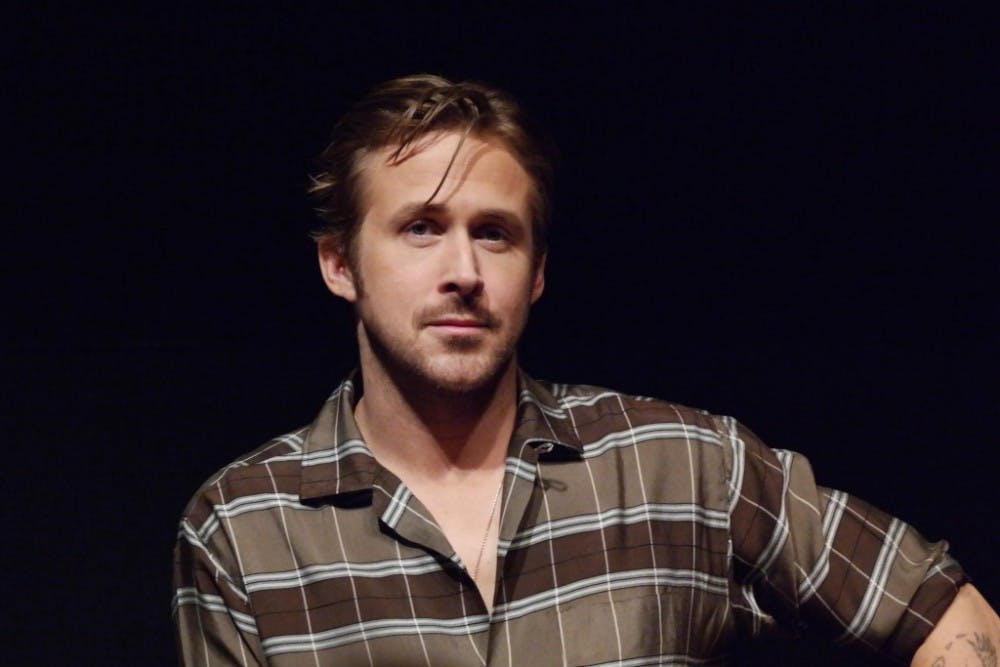Amid the polarized economic debates of this election season, The Big Short brings audiences back to the origins of the “Great Recession,” a story of nearly unbelievable greed and devastating loss. To those who recall the blaring headlines and chaotic atmosphere of nearly a decade ago, the film brings a sense of clarity and unravels the twisted heaps of corruption that led to the downfall of the word economy.
This film is a surprising departure for director Adam McKay, who is known for his raunchy, outlandish comedies like Step Brothers and Anchorman. While there is some humor woven throughout, the film is mainly comprised of breaking down the superficial complexities of the housing market and forming grim realizations about the state of American society.
McKay, who earned Academy Award nominations for Best Adapted Screenplay and Best Director, perfectly crafts a balance between truthful comedy and equally truthful, heartbreaking drama. With so much at stake, the film is careful to avoid the outlandish and veer in the direction of dark humor.
One of the film’s major strengths is in its screenplay, which was adapted by McKay and screenwriter Charles Randolph from the 2010 book The Big Short: Inside the Doomsday Machine by Michael Lewis, the author of Moneyball.
The screenplay clearly lays out the narrative behind the financial crisis and the complex terms that no banker ever wanted the public to understand.
It does not patronize audiences, but rather creates a level of understanding for those who were purposely left in the dark by an industry that capitalized on making their work seem more complex than it truly was.
As the film soon shows us, buried beneath those jumbled phrases and millions of hidden, virtually untouched statistics lay a malicious profit machine.
In addition to the exceptional screenplay, the film also greatly benefitted from the performances of every actor. Their nuanced emotional performances and straight-forward delivery of dialogue allowed audiences to remain engaged and empathize with the actions of bankers and investors with a clear self-interest.
The film’s narrator, banker Jared Vennett, played by a slick, raven-haired Ryan Gosling, is both within and without, providing us with an occasional simplification of subprime mortgages while also cashing in on the crisis.
Gosling is an ideal casting choice for a role that requires a level of both arrogance and honesty. His suave charm and blunt admissions allow audiences to follow along with a character lacking in moral consistency.
In addition to his explanations, he also offers up those of celebrities like Selena Gomez and Margo Robbie, who breaks down the inner workings of a corrupt housing market from the comfort of a bubble bath.
Steve Carell, continuing on his streak of more dramatic roles after his Academy Award nomination for Foxcatcher, is perfect in his role as a cynical hedge-fund manager who is also dealing with a personal crisis.
Of the cast of greedy bankers and sly mortgage brokers, Carell’s character is more complex than others. He plays this with a sophisticated subtly, creating sympathy for his struggles while maintaining the facade of a hardened, cynical veteran of the banking system.
Christian Bale, the only actor nominated for an Academy Award for his performance in this film, is dynamic in his role as Michael Burry, a socially-awkward Wall Street guru who foresees the crash long before any one else does. Perhaps the reason Bale was recognized for this performance was due to the almost brutal intensity with which he captures the audiences attention.
Set in his unpopular disbeliefs about the coming economic apocalypse, he is frantic and loud, cursing out his boss and banging on his home drum set drenched in sweat. He also brings a tenderness to his performance in his obvious love for his family. However, in a category with Sylvester Stallone and Tom Hardy, Bale’s performance appears relatively subdued.
Other supporting actors, including Brad Pitt who is a producer on the project, and Marisa Tomei who plays Baum’s worried wife, also help to bring the film a sense of validity and empathy.
What is particularly notable about these performances is the fact that they create sympathy for ruthless bankers who eventually capitalize on the devastation of the economy.
Despite their ultimate desire to turn a profit, we still root for Mark Baum and his assistants as they steadily uncover the tragedy and loss behind the empty loans that triggered the crisis.
Also noteworthy is the fact that the film shows the people affected by the crisis. While much of the media coverage over the past few years has been dedicated to the political sphere and how politicians are attempting to overcome this crisis, the country has often overlooked the human element to the recession that impacted families who had the dream of home ownership dangled in front of their faces by a corrupt system.
We encounter Mark Baum in a strip club where an exotic dancer who, with her limited income and mountainous debt, proclaims that she owns a number of properties.
In a scene of particularly heavy emotion, we meet a poor family whose landlord has abandoned them after a number of missed payments.
Besides the recognition the film has received for its performances and its screenplay, there has also been recognition for its editing done by Hank Corwin. Throughout the film, Corwin’s skilled, careful work is evident. He weaves together several narratives in a game of winners and losers that was built in the winner’s favor.
An engaging and entertaining movie that flashes major Hollywood actors, The Big Short is also one of great emotional depth. Ultimately, the film does a service to its audience. It breaks down the befuddling jargon and mess of statistics behind the crisis and leaves us with the bitter truth that this type of illegal activity is still a part of American society.
















Please note All comments are eligible for publication in The News-Letter.